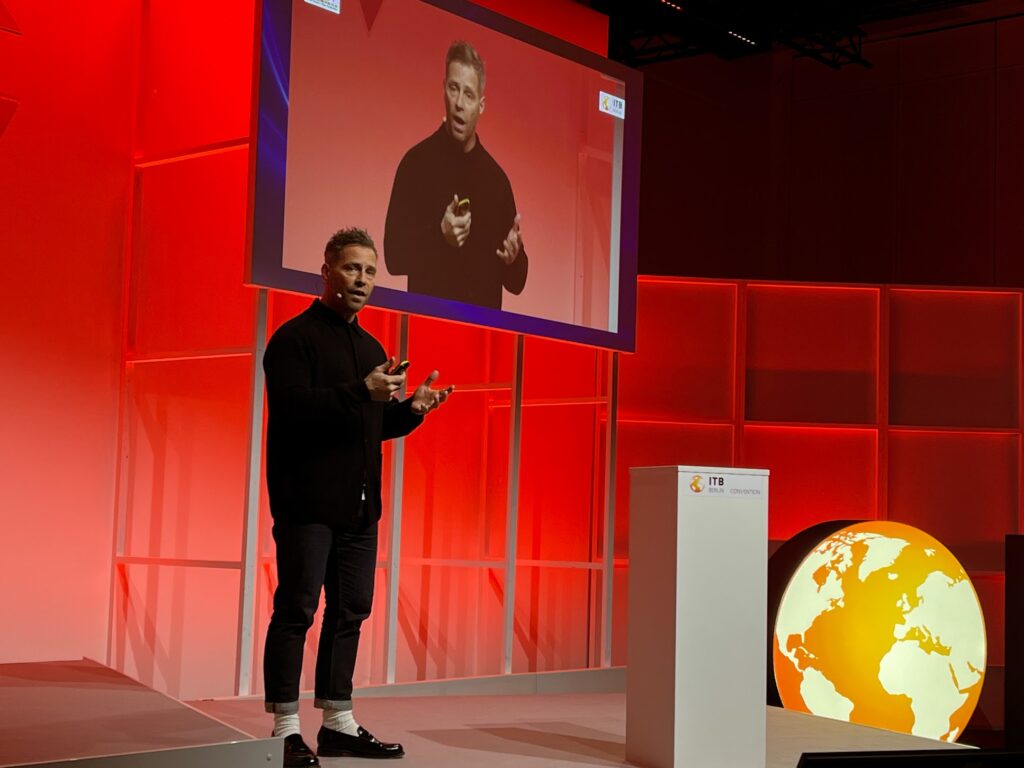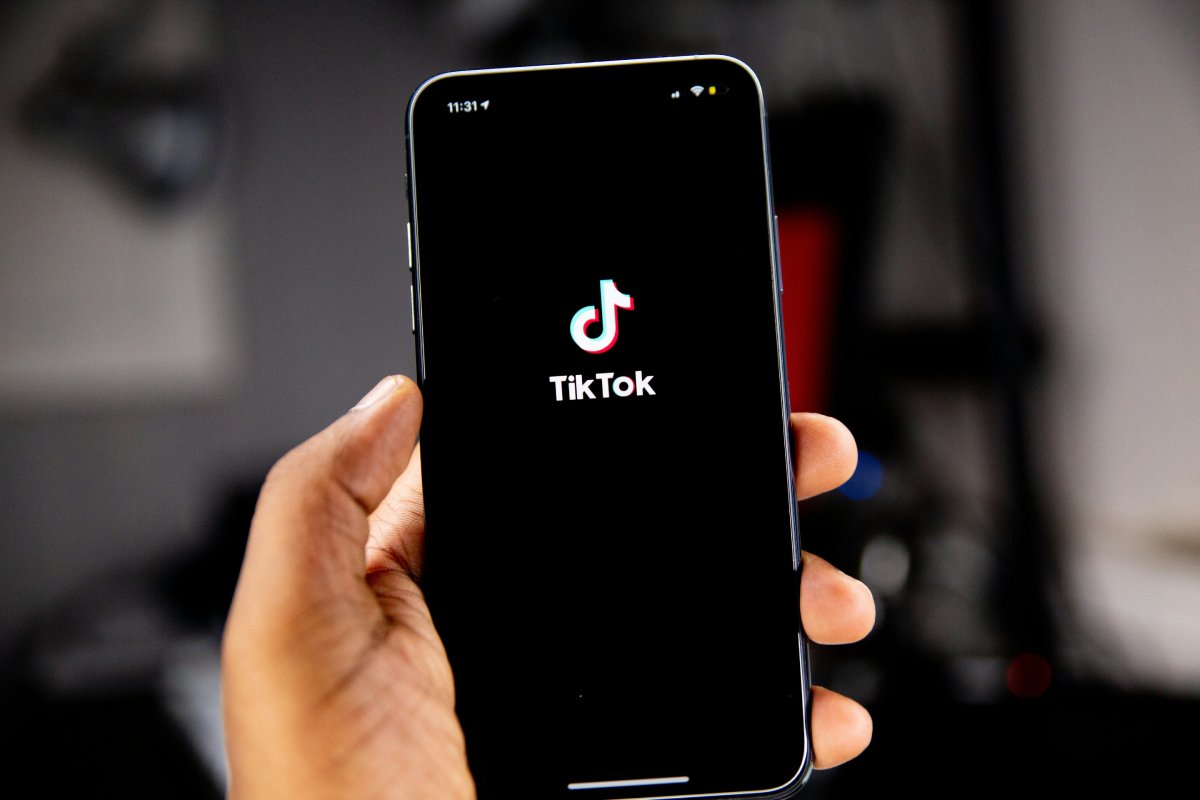Skift Take
TikTok has become an influential force in travel discovery. Selling travel more directly would make it formidable.
Millions of people look to TikTok every day to plan their next vacation. So airlines, destination marketers, and hotels create short videos on the platform to influence final booking decisions.
Over 60% of users in Germany, Austria, and Switzerland say they’re likely to book a holiday based on recommendations they’ve seen on TikTok, according to Stuart Flint, who heads TikTok’s global business solutions for Europe and Israel.
Flint spoke with Skift Wednesday after his on-stage presentation at ITB Berlin, the travel trade show.
Flint discussed the platform’s niche communities, TikTok’s tests of long-form videos, why some celebs struggle on the platform, tips for appealing to users, and other issues.
This interview has been edited for clarity and length.
How Travel Brands Work With TikTok
Skift: 2022 seemed like the year when travel brands really started using TikTok. How much has your travel advertising revenue grown since?
Flint: As they came out of Covid, people started to think about travel. They wanted to explore the world. People wanted just to get away. And then because TikTok was more front and center than previously, that’s why brands started to use it.
Inspiration is a big part of that. Certainly, using the search and the discovery bar has been a significant shift in the way people behave on the platform. So that inspiration piece is great.
Then there’s the education piece. The idea of airlines like EasyJet or Ryanair, for example, is to really have fun with the platform. They’re quite humorous but stay true to their brands. This also allows them to educate, whether it’s a pilot telling you about turbulence or something else, or sharing a little hack about how to use the sick bag on the back of your seat.
We don’t share any information about revenues. But I can tell you that there’s been some really interesting travel brands working with us.
Booking.com is a very key customer for us. Travel booking, destinations, and airlines have become really, really big for us. So we’ve seen a lot of growth.
By the way, that’s not just paid. They’re also investing a lot of their time and energy into organic.
Food, Fitness, Fashion: Travel Trends to Watch
Skift: Can you go into the diversity of the travel community on TikTok?
Flint: Food is one of the big trends that now bridges the gap between those communities. Travel is such an important part, but we understand that the second most popular reason to book was not just excursions but food and drink. People love to experience different cultures of food, whether it’s a market or it’s a backstreet restaurant.
Fitness is such a big community in itself. It’s about CrossFit but not necessarily related to travel. Some people like to go on travel experiences where it’s a healthy weekend where they’re keeping fit, and they’re eating great food, and they’re not drinking alcohol.
So this becomes this really huge trend now saying, ‘I just want to go up into mountains in Austria and just be zen, be at one with my body and where I have a really great weekend with my partner.’
Fashion and beauty are big communities on our platform, too, and they inspire what to wear when you go to the beach or to a certain destination. For example, how do I get that ‘Cali look’?
It’s really important for travel brands or travel companies to not just associate themselves with that one vertical of travel. You’ve got to be in all these areas and having conversations with users that are inspiring those travels. All of those communities will help drive any inspirational travel decision or purchase that they may make.

Honest Experiences Help Creators Thrive
Skift: What has been the evolution in the creativity of TikTok’s content creators?
Flint: What’s happening is we’re seeing more and more creators become more and more popular. They’re almost becoming celebrities in their own right. They used to be called influencers, but I don’t think they exist anymore. I think the celebrity effect on our platform isn’t there.
I don’t think celebrities necessarily thrive on TikTok in the same way that they do maybe on other platforms. As long as they’re incredibly authentic and they’re creating content that shows you especially travel the highs and the lows of any travel that you go on. It’s not all uphill all the time in beautiful and turquoise waters.
Sometimes, you have a really rough day. It’s not always going to be beautiful sunshine and mountains in the Alps. And so having those honest experiences is what helps creators thrive and become very, very popular, and then bringing that element of humor, which is often overlooked.
‘We’re Always Testing’
Skift: TikTok became successful in large part due to its short-form vertical format, but it has started to allow longer videos.
Flint: We’re testing that. We’re always testing. Right now, it’s a maximum of 10 minutes on the platform. Would we increase that again? I think if it was right.
Right now, we’re trialing the idea of moving and turning your phone 90 degrees and making it in landscape format rather than vertical.
So we’re trying all these things, I think, just to give a point of difference for creators and make it an enjoyable experience.
I remember seeing a video of a man just kind of experiencing the wilderness, and I think it was in the U.S. Imagine that in the landscape format. That’s the opportunity. We’re saying, well, we can bring more creativity to the way that you are constructing your videos.
‘Small Niche Communities Are Driving Mass Cultures Now’
Skift: Meta and Google have adopted short-form videos into Instagram Reels and YouTube Shorts, respectively. Can they copy your secret sauce?
Flint: When I look at other platforms, potentially they’re a much more glossy experience for me. It’s like reading a magazine, whereas TikTok, it’s authenticity and people being real with each other. It is hilarious.
The humor piece is important. If someone is taking themselves too seriously, you see a lot of responses to that on TikTok.
Being yourself is a plus. It’s a safe space for people to be themselves. And I think that’s what TikTok always stood out to be. You only have to look at the comment section when people are putting themselves out there actually being quite emotional about it.
The responses you get in the comments area are fantastic. People care about their communities and the communities are what’s driving TikTok. These communities are the lifeblood, and they support each other. And these communities, these small niche communities are driving mass cultures now, which I think is a wonderful experience.
Booking Travel on TikTok? ‘Watch This Space’
Skift: TikTok allows users to buy products directly on their platform. Why doesn’t TikTok allow travelers to book directly on the platform?
Flint: All I’ll say is ‘watch this space.’ We see commerce as a really important part of our growth. Commerce is going to be huge. Beauty and fashion are right now the areas where most people are thriving.
It’s fascinating how people interact not only with video content and other users but also how they’re interacting and making purchases based on those influences on a peer-to-peer recommendation.
People they trust that look like them, sound like them, are like them. They’re in the same community as them. And that same type of person, same sort of age. I trust that person and that’s a really cool outfit that they’re wearing or that’s a really cool adventure that they’re going on.
For example, about 60% of DAC [Germany, Austria, and Switzerland] users are more likely to book a holiday based on inspiration on the platform.

Travel ‘Dupes’ Trend
Skift: One thing tourism boards have liked about TikTok is that they can drive traffic to hidden gems without needing a large follower base.
Flint: That’s really the ‘travel dupes’ trend, where people are making recommendations on alternatives, more budgeted alternatives. Say, don’t think about Korea because that’s quite expensive to go to right now and the flight’s expensive. Go to Taipei instead. You’ll have a phenomenal experience both in terms of cuisine, both in terms of culture, of architecture. Someone saying that would be an example.
So, these alternative dupes are one of the big trends that we have started to see. And that’s helping small economies grow as well.
By the way, Taipei is not a small economy, but it’s certainly helping young businesses thrive because more people are going there. I didn’t really think about Taipei, but now I’ve been to Taipei and it’s incredible. It’s a great place to go.
Building a Trusted and Safe Environment
Skift: There’s been recent pushback from the European authorities in regards to data privacy and user safety. What do these recent developments mean for TikTok?
Flint: Well look, we are constantly talking to the European Commission. We’re constantly talking and having communication about how we can do better. I think that’s what we’re all trying to do. And the fact that this is happening is a really positive thing for the industry. By the way, our number one priority, the bedrock of everything we’re doing, is keeping our users safe. I really care about the communities that exist on our platform.
That’s not just about the content, by the way. It’s also about the brands and the importance that brands want to be associated around content that’s relevant to them but also equally incredibly safe.
We’ve now got 40,000 professionals who are effectively trust and safety employees who are looking out for those communities and those brands on our platform. And there are a number of tools that I can control as a parent that allow me to effectively make sure that my son or my daughter are kept safe. And there are a number of things that we’ve put in place that have put restrictions in place to make sure we’re keeping these people safe.
So, if you’re under 17, for example, there is no direct messaging. There are a number of different things that we’re doing that don’t necessarily get the headlines, but we’re always, always looking to build a much more trusted and safe environment for our users.
More context: TikTok Chips Away at Google’s Dominance in Travel Discovery
Skift’s Coverage of ITB Berlin 2024
The Daily Newsletter
Our daily coverage of the global travel industry. Written by editors and analysts from across Skift’s brands.
Have a confidential tip for Skift? Get in touch
Tags: digital markets act, direct booking, direct booking wars, direct bookings, european union, instagram, online travel, regulation, regulations, social, social media, social media marketing, tiktok, tourism, youtube

